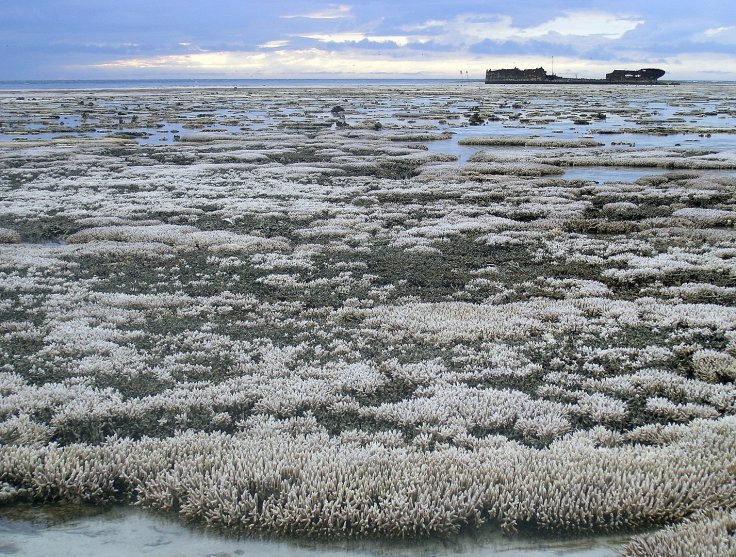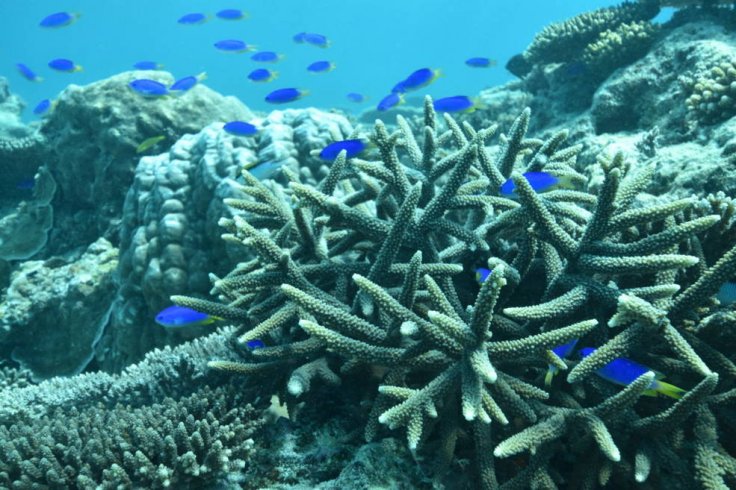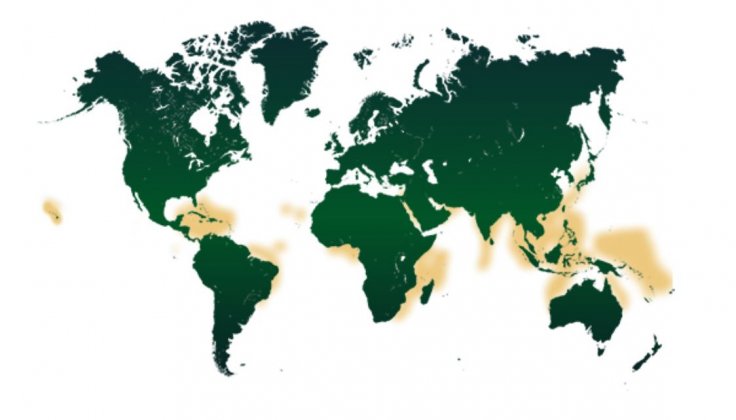The destruction of coral reefs poses a threat to not only countries that are protected by it but also livelihoods that depend on it. Hence, when it was first found that corals were dying due to increasing ocean temperature, alarm bells rang.
The severity of the problem was realized recently when 70 percent of total coral reefs were harmed in El Nino (2014-2017), a phase of warm ocean water. With climate change further warming the ocean temperature, destruction could be on the cards in near future.
As nearly 25 percent of all marine lives are found near coral reefs which also protect the coastline from erosion, any harm to it will eventually lead to the devastation of those and also the economy. In Florida alone, 98 percent of corals have died due to ocean warming and acidification of water.
However, scientists noticed that despite warm conditions, not all corals die. Using the controversial gene-editing technique CRISPR, scientists isolated the gene responsible for heat tolerance in coral from the Great Barrier Reef in Australia.
Marine geneticist Dr Phillip Cleves from the Carnegie Institution for Science (Washington DC, U.S.) and his colleagues conducted a study and published the findings in the Proceedings of the National Academy of Sciences (PNAS). His team found that a genetic test could reveal corals more vulnerable to ocean warming and bleaching.

"The main problem in the field has been the fact that we haven't been able to figure out what genes are playing a role in either coral bleaching or coral survival to heat stress. We didn't have genetic tools to allow us to ask what their genes do," Cleves told Future Human.
CRISPR for Corals
CRISPR has been a revolutionary technique for geneticists. By using the technique, scientists can manipulate genes to eliminate genetic disorders. While it is controversial and banned for use in humans in many countries, the technique proved to be more challenging in corals than thought.
The first challenge was that it had to be done on newly fertilized eggs. As corals brood only once a year, that too during a full moon night with the right water temperature, it was difficult for scientists to collect the eggs. It took Cleves and his colleagues several years and many trips to the Great Barrier Reef to collect the fertilized eggs.
Once they had their hands on the eggs, scientists inserted CRISPR into the fertilized coral eggs. By using the technique, they removed a gene from the eggs. Once the eggs hatched, the scientists released the larvae into the water at various temperatures to check their tolerance.

HSF1 Gene Plays Key Role
The larvae with the gene removed had no problems in water temperature of 27° Celsius (81° Fahrenheit) but failed to tolerate 34°C (93°F). However, the unedited larvae survived in such temperatures without any problem. For the first time, scientists realized that the gene was responsible for corals' survival and named it HSF1. The water temperature in the Great Barrier Reef ranges from 29°C in the summer to 23°C in the winter and revealed the mystery of why some corals survived in warmer temperatures.
In warm temperatures, corals try to sustain by expelling algae that give them vibrant colors and nutrients. However, with excessive discharge — called bleaching as it turns white — corals cannot grow and loses the ability to reproduce besides not getting the nutrients. It becomes vulnerable to bacterial infection and other diseases. That's why it is important to have a water temperature that it can sustain in.
"This result shows the key role HSF1 plays in coral coping with rising temperatures," said Dr Dimitri Perrin, chief investigator with the Queensland University of Technology's Centre for Data Science, adding that it helped them understand the fundamental biology of corals.

Future Possibilities and Legal Challenges
Now that the scientists have understood what the HSF1 gene could do in corals, they can use CRISPR to make it tolerate heat better. By instilling the HSF1 gene in corals that lack it, scientists can make them more heat tolerant and a chance to sustain in the face of climate change and rising ocean temperature.
However, such a conservation approach would face legal challenges in many countries including Australia, where CRISPR is banned by legislation. Edited corals would be considered a genetically modified organism (GMO) and could not be applied. "Their release into the environment would, very properly, face rigorous regulatory and public scrutiny," said Dr Madeleine van Oppen, a coral geneticist.
Furthermore, she believes that genetically modifying corals would be risky as human interference in natural selection could lead to unforeseen problems. Apart from that warm ocean temperature isn't the only problem corals face. The shallow water corals found in suffer most pollution, meaning even modified corals might not survive.









